With Great Power, Yadda, Yadda, Yadda... thoughts on Jonathan Hickman and Macro Checchetto's Ultimate Spider-Man Volume 1.
It’s the small changes that say the most about Jonathan Hickman and Marco Checchetto’s Ultimate Spider-Man.

On the surface, this looks like another Spider-Man origin story, just with a thirtysomething Peter Parker instead of a teenager, hence the name of this volume “Married With Children.” Already an adult, married to Mary Jane, and father of two children May and Richard, this Peter is given a choice— stay the way that you are or become the hero you were meant to be. Here, Peter’s origin isn’t an accident but a decision. This Ultimate world has superpowers but it doesn’t have any superheroes; those were taken from it by the Maker, a sociopathic Reed Richards who twisted this world toward his own ends. Jonathan Hickman and Marco Checchetto’s Spider-Man is a different Spider-Man, not driven by tragedy but motivated by an emptiness that he feels. This isn’t a teen superhero but a midlife crisis one.
This Peter makes quips like the Peter Parker we know. He sounds and acts like the Spider-Man we know and love but this time, that patented Parker luck may have worked in his favor— he’s a family man, with a beautiful wife and wonderful children. The superhero union suit didn’t get in the way of Peter Parker living his life, a life full of love that he’s happy with until he’s told by a hologram of teen Tony Stark that his real life was taken away from him. There was no spider, no powers, and no costume when he was just a kind figuring out who he was in high school. We all wish in high school to have something that sets us apart, with sets us above, the other kids in school. It’s the teenage dream and it’s what Peter Parker lived when he was Spider-Man. So you’ve got to wonder for him what it would be like to grow up and never have that wonderful secret that he kept from his classmates.
Hickman and Checchetto think that he would have grown up to be a decent father, husband, and nephew. Their Peter is a good guy (not like a heroic good guy but just a guy who is generally good); even J. Jonah Jameson likes him in this world. And even without the tragedy of Uncle Ben’s murder, Peter already knows what great responsibility is. His family is his great responsibility so he’s already got that part of the Spider-Man mythos down. In this case, that great responsibility came well before any kind of great power. That’s the difference between this Spidey origin; not age but the responsibility that Peter has in this world. It maybe doesn’t seem like much but it’s a pretty big deal— Spider-Man is defined by tragedy and his response to it. His life is both power and responsibility.
That’s not to say that Peter doesn’t know tragedy. On the day he decides to accept the powers being offered to him by teen Tony, he attends a memorial with his family and his Uncle Ben to honor those killed in a terrorist attack on New York City, including his own beloved Aunt May. The world believes that Tony Stark and his cohorts blew up part of NYC. Peter and his uncle are picking up their lives after the death of May so it makes sense that Peter thinks that something is missing from his life- his Aunt May is. But in this world, both Uncle Ben and Aunt May got to watch Peter grow up, become a man, get married, have children, and learn to be a father. It was a perfectly normal life for all involved until the terrorist attack took away that normality.

Marco Checchetto, Matt Wilson, and David Messina (who fills in for Checcetto in two chapters) give this story a lived-in feel. Their NYC is modern but it’s built on the bones of an old city. While the experiences that Peter is going through, the city he’s going through them in is harsh and challenging. They create this setting that challenges this novice hero but it’s also a great urban environment that like Peter is looking for something it’s missing— it’s heroes. There are these voids in the city such as a news outlet that realizes if it can’t always tell the truth, at least it can try not to tell lies. That’s a void that Jameson and Uncle Ben are trying to fill and their journey is filled with these visually wonderful places that help anchor you in the story you’re reading. But it’s also a city that feels like it’s always right on top of you, trying to keep you in it, making sure that you can’t escape it. So putting a character who can swing his way through the steel canyons feels like a way of trying to break free of the powers that control the city.
Like all of its predecessors, Hickman and Checchetto’s story is still a fantasy story but it’s recontextualized for those of us who maybe have a few more years behind us than Peter Parker does. It’s for people who look back on their life with thoughts of things not quite being the way that they should have been. So it’s easy to identify with this Peter who’s looking back at his life and learning that what could have been was stolen from him. It’s taking the high-school drama that Stan Lee and Steve Ditko imagined and substituting it with the mid-life crisis of a man questioning what he’s done with his life. Usually, we go out and buy a sports car or get a new girlfriend who’s 20 years younger than us to fill that longing. Those are the ways that we try to find some relief from our insecurities- not by getting superpowers and swinging around New York City like some wild stuntman.
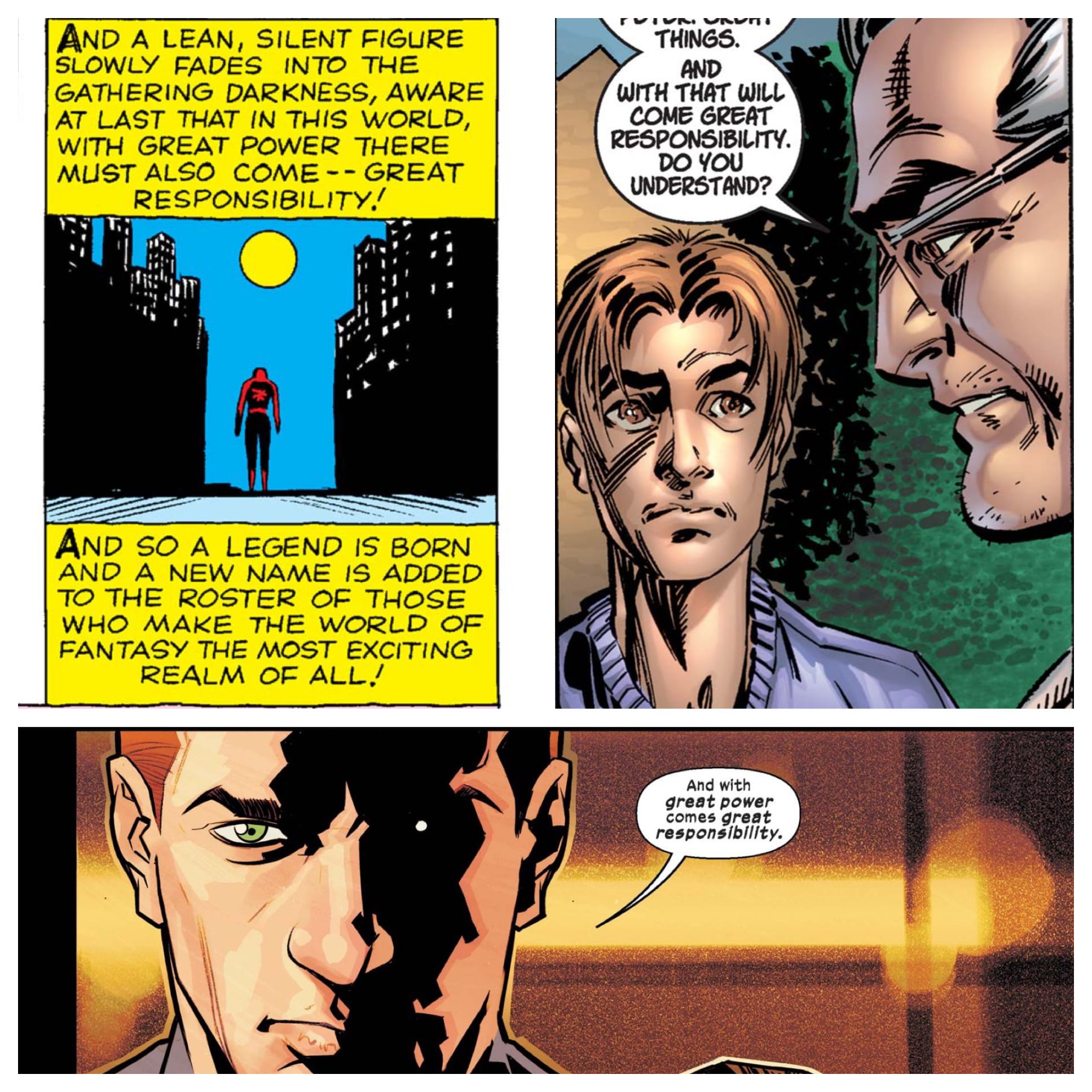
And that’s where Harry Osborn comes in to offer an interesting contrast to Peter. In this life, these two men are strangers but have so much in common, including losing a loved one in that terrorist attack. While Peter wonders what to do with his life, Harry forges on, taking over his father’s business empire and being handed the secrets of this world, including his own super-powered suits developed by Howard Stark. Harry much more decisively knows what to do with the power he discovers; he thinks he understands what “with great power comes great responsibility” means as he delivers that line to Peter as the two discuss what they should do with their powers. In Amazing Fantasy #15 when we first read that line, it’s obvious that the emphasis lies on the idea of responsibility. It’s not so much reliant on the power but what Spider-Man learns in that original story is that he has responsibility because of his abilities. Honestly, those abilities could have been great or they could have been average but based on his upbringing, he understood what that responsibility was because of how he was raised.
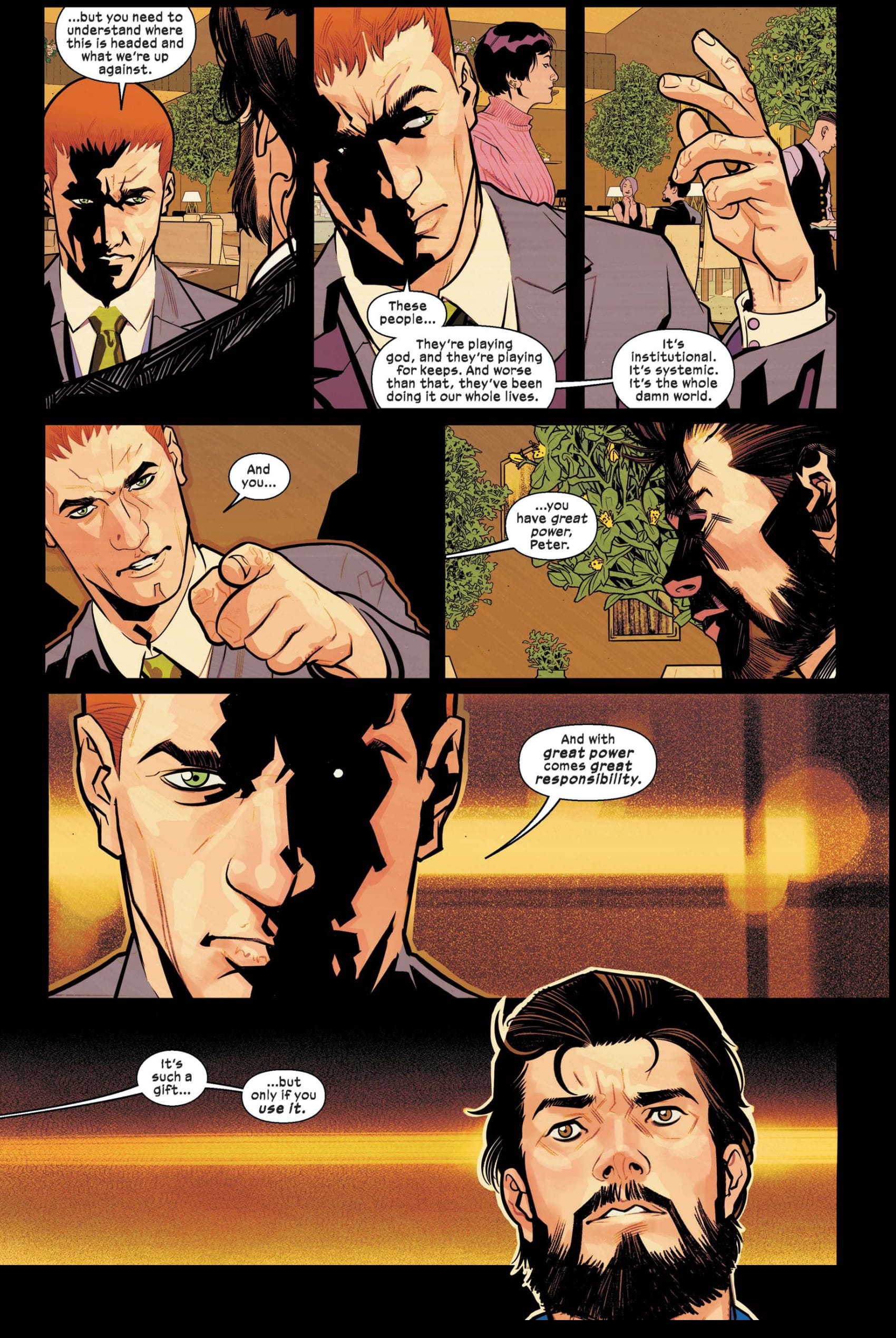
So in this telling, that line is delivered by Harry Osborn, who’s so much more driven by the power to take the ruling power from the evil men who bear it. His view of that line isn’t so much a moral statement as it is an ambitious and righteous statement. This Peter knows what responsibility is before he was ever given power. But this Harry is a bit too caught up in his world to recognize and understand the words that he’s saying. In other tellings of this story, Peter learns this lesson as a part of his upbringing; they’re the values that his aunt and uncle instilled in him as he was growing up even as he couldn’t quite understand them until the tragedy that’s as much a part of his origin, if not more than, the spider bite. The spider was just the mechanism of the origin; the tragedy is the spirit of it.
When Harry says those words, it’s important to see Peter’s reaction to it, how he’s shocked and thrown off by the statement. As we see his uncle crusade to do what’s right because it’s his responsibility to be a good journalist, we know that Peter’s worldview is completely different than Harry’s. They both may have the same tragedy in their background but it’s what they do with that tragedy and how they channel their pain, their fear, their anger, and their uncertainty that makes them different. The villains often think that they have the responsibility because of their power but it’s the hero who accepts the responsibility first and the power is then a manifestation of the responsibility. Peter Parker is a hero whether or not he has powers. But what would this Harry be if he hadn’t stumbled upon a cache of already-built super suits?
It’s intriguing to see how Hickman and Checchetto are twisting elements of the story without completely twisting the story itself. In this new Ultimate Universe retelling, they have moved around the furniture of the narrative room, refreshing the layout and introducing a few new decorative touches here or there but it’s still the same four walls that it was before. This is an older Peter Parker but it’s still Peter Parker. It’s great to see what kind of man he would have grown into if that spider never dropped on his hand and it’s also intriguing to see this older, more established Peter get his powers for the first time.
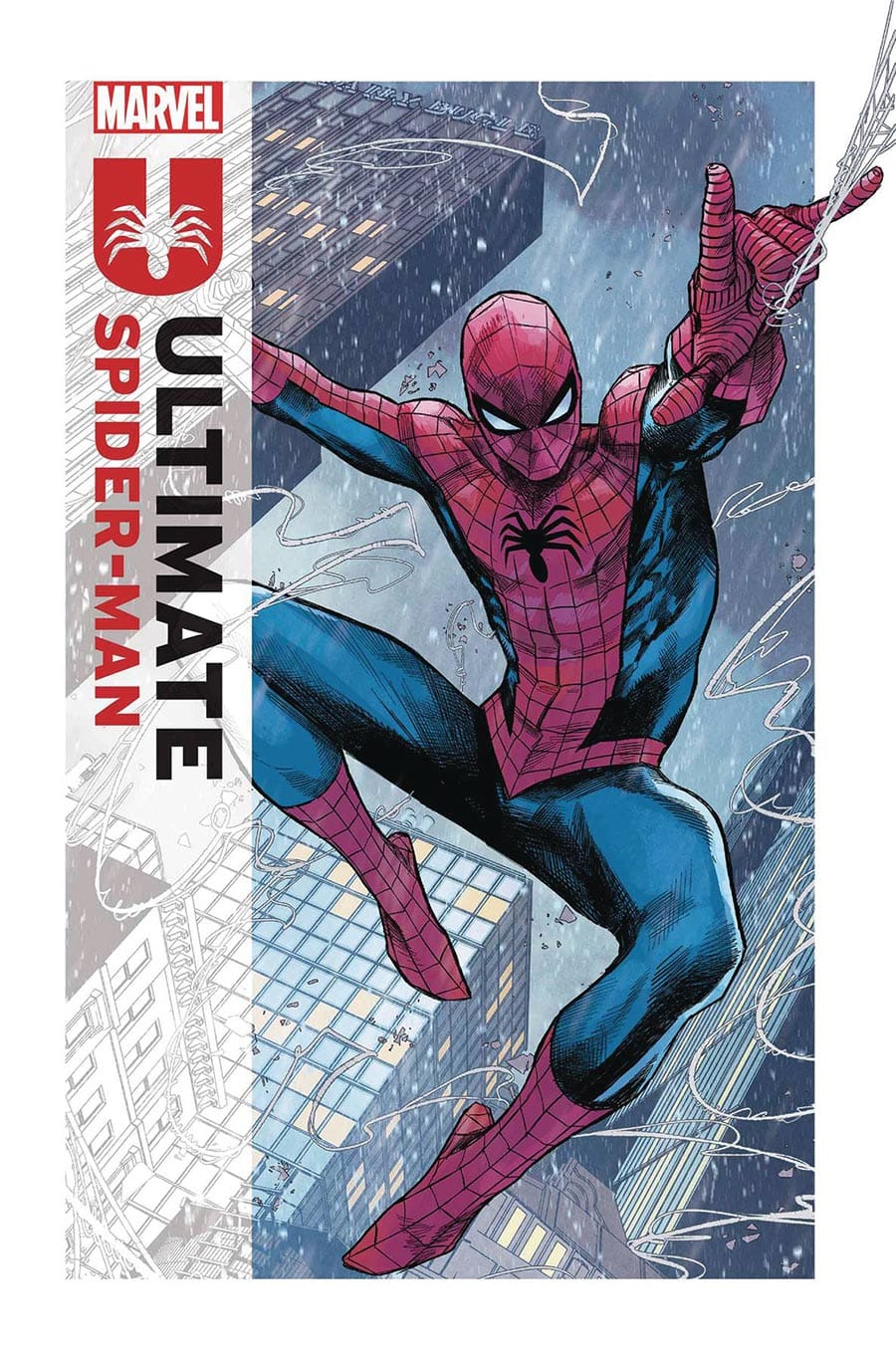


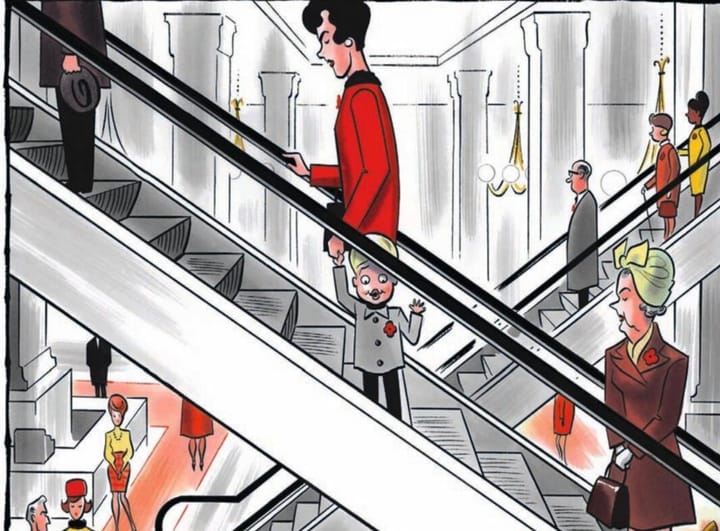

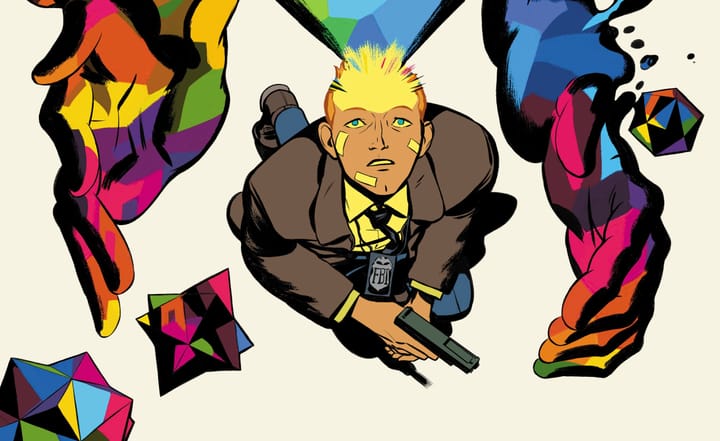
Comments ()